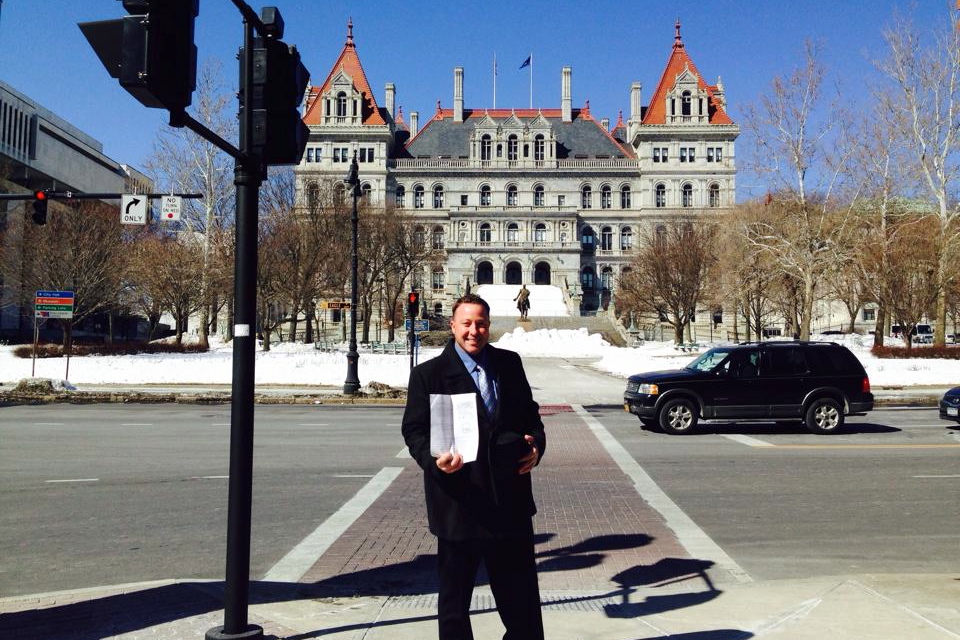Deer Advocates Block DEC from Issuing New Permits for Cull

A coalition of groups opposed to the ongoing deer cull on the East End obtained an injunction from a New York State Supreme Court judge in Albany on Thursday, temporarily barring the state Department of Environmental Conservation from issuing any more deer damage permits in Suffolk County.
The DEC has issued 12 deer damage permits—also called nuisance permits—in the towns of Southampton, Southold and East Hampton, and at least six more permits for the cull were pending, according to a DEC spokeswoman last Friday. Also, the DEC issued 500 deer tags, which are required for each deer “taken,” i.e. killed. At least until both sides meet at the next court date March 28, the DEC is prohibited from granting any more deer damage permits for the Long Island Farm Bureau-sponsored cull, which is being carried out by U.S. Department of Agriculture sharpshooters. The agency also may not issue permits on North Haven, where the village has its own cull planned using the wildlife management firm White Buffalo.
The permits that have already been issued are still valid, so this injunction does not completely stop the cull in its tracks.
Deer damage permits are available to landowners whose property and vegetation is being destroyed by deer. The permits allow for shooting of deer outside of hunting season, and the permits are typically restricted to antlerless deer only. With the USDA’s involvement, the hired shooters are allowed to use a number of techniques not available to average hunters on Long Island, such as baiting, shooting at night and use of rifles.
The groups that successfully sought the injunction are the Wildlife Preservation Coalition of Eastern Long Island, the Animal Welfare Institute, Long Island Orchestrating for Nature, the Evelyn Alexander Wildlife Rescue Center, and Hunters for Deer.
In his decision, Judge Joseph C. Teresi wrote that it appears the petitioners are likely to succeed on the merits of their claims and that the DEC’s actions will cause them “immediate and irreparable injury” if the DEC is not “immediately restrained.” The petitioners claim the DEC failed to comply with the State Environmental Quality Review Act and that the agency must conduct an environmental assessment and an environmental impact statement on the effects of the “large-scale cull.”
“It’s good to see that Judge Teresi is able to see through the wall of secrecy that runs rampant through the DEC,” said Hunters for Deer founder Michael Tessitore, who was also individually named among the petitioners. He said the DEC needs to be held accountable and he also questioned why the Long Island Farm Bureau has a hand in deer management policies.
Among the reasons given for the cull are deer’s carrying of ticks that spread Lyme disease, deer-versus-vehicle accidents and—the reason closest to the Long Island Farm Bureau—damage to crops.
Tessitore said he has many questions regarding the cull and he has been unable to get any answers from the DEC, the USDA and the farm bureau. One thing he has been trying to find out is what’s happening to all of the deer that have been taken by the sharpshooters. While it has been said that the deer are being donated to food pantries, Tessitore said, no one has verified where the deer are going.
Hunters for Deer became involved in opposing the cull because it favors loosening hunting restrictions in order to allow hunters to take more deer. The group also does not believe taxpayer dollars should not be used to take deer that belong to the people of Long Island.
In a case of strange bedfellows, Hunters for Deer is working hand-in-hand with animal advocates, many of whom are opposed to any hunting whatsoever.
“All of my guys have evolved from this process, realizing the importance of being conservationists,” Tessitore said of his group. Plus, he said animal rights advocates have evolved, realizing that hunting is here to stay and that it is needed to manage a deer herd.
Now, his group is working on a venison distribution plan and a program to match landowners with ethical hunters.
“We believe in management, not a massacre,” he said.





